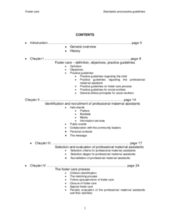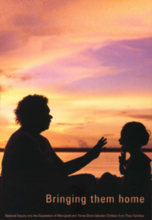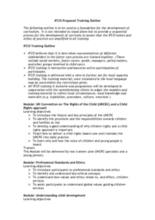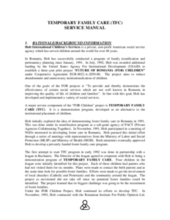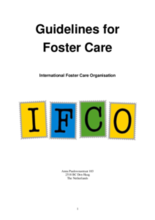Displaying 2141 - 2150 of 2168
This document contains a set of basic principles for foster care. It includes chapters on recruiting, selecting and training caregivers, placing children, evaluating placements, and the functions of social workers.
First published in 1999, this work draws together a multi-national collection of papers, and aims to stimulate the development of policy and practice in this often neglected area.
These regulations were developed in the United States (in the state of Rhode Island) to assess all individuals who care for children away from their legal parents. It may contain useful information for organizations and countries that are developing their own regulations for foster carers.
The Children Act, Chapter 59 took effect in Uganda on 1 August, 1997.
This report from Australia's Human Rights and Equal Opportunity Commission aimed to trace the past laws, practices and policies which resulted in the separation of Aboriginal and Torres Strait Islander children from their families by compulsion, duress or undue influence, and the effects of those laws, practices and policies.
In order to investigate orphans' situation and development in Iraqi Kurdistan, samples from the two available orphan care systems, the traditional foster care and the modem orphanages, are examined at an index test and at 1-year follow-up regardin
A training outline that conveys IFCO values and ethics of practice in foster care services. It provides 13 modules dealing with issues such as the rights of the child, child development, state care, foster care, transition from care, and legal and administrative management of child protection services.
A manual for the establishment of foster care in Romania as an alternative to the institutional placement of children. Addresses the legal framework, policies, processes, responsibilities and administration surrounding creating and maintaining a foster care system.
Guidelines for foster care, developed by IFCO at a special Working Group Meeting held in Bangkok, Thailand from 1-4 May 1995 in cooperation with the Department of Public Welfare, Bangkok.
Procedural standards outlining the roles and responsibilities of fsoter care authorities and agencies.

